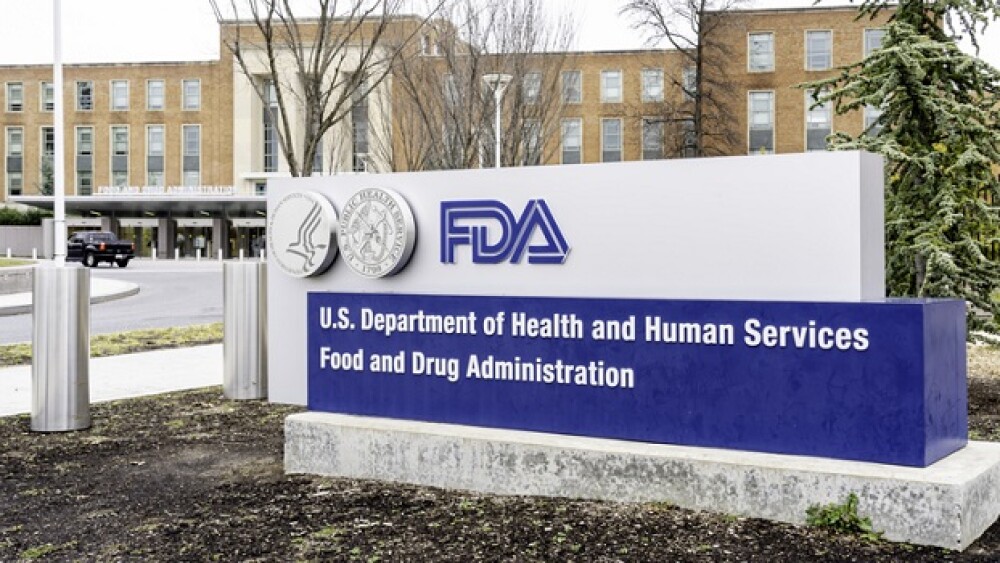The biopharma’s monoclonal antibody is the first to win approval for the two most common forms of generalized myasthenia gravis, a rare autoimmune and neuromuscular disorder.
Pictured: Blue FDA sign on a white background/iStock
Tuesday, the FDA approved UCB’s Rystiggo (rozanolixizumab), a subcutaneously administered humanized IgG4 monoclonal antibody to treat patients with a rare muscle-wasting autoimmune disease.
The FDA’s approval of the treatment for two forms of generalized myasthenia gravis (gMG) follows positive Phase III trial results that showed the drug led to significant improvements in symptoms, including the ability to breathe, talk, swallow and rise from a chair.
Rystiggo blocks the interaction of the neonatal Fc receptor and immunoglobulin G (IgG), resulting in a reduction of circulating IgG autoantibodies. The approval covers adults with the disease who are anti-acetylcholine receptor (AChR) or anti-muscle-specific tyrosine kinase (MuSK) antibody positive, making Rystiggo the only FDA-approved treatment for both gMG subtypes.
In the disease, pathogenic IgG autoantibodies can impair synaptic transmission at the neuromuscular junction by targeting specific proteins on the post-synaptic membrane. This affects the ability of the nerves to stimulate the muscle.
This muscular weakness can cause potentially fatal disruption to respiration, as well as double vision, drooping eyelids and difficulty swallowing, chewing and talking.
“No two people living with gMG experience the disease in the same way, so we can’t take a ‘one size fits all’ approach to disease management,” Iris Loew-Friedrich, UCB’s executive vice-president and chief medical officer, said in a statement.
Patients with gMG have also been given steroids, immunosuppressants and acetylcholinesterase inhibitors. But the disease’s heterogeneity makes it difficult to treat.
In January 2023, UCB announced that the FDA accepted the company’s filing to review a BLA for Rystiggo and that the regulator had granted Priority Review.
Last month, the Phase III MycarinG trial results were published in The Lancet Neurology. Patients on Rystiggo had better improvements in eight symptoms than those on placebo. On a 0 to 24 scale, known as the MG-ADL total score, patients on UCB’s treatment had a 3.4-point change from baseline; the placebo group saw a 0.8-point change.
The most common adverse reactions, reported in at least 10% of patients treated with the drug, were headache, infections, diarrhea, pyrexia, hypersensitivity reactions and nausea.
Rystiggo will be commercially available in the U.S. during the third quarter of this year, UCB said. The treatment is still under review in the EU and Japan for adults with gMG, which affects between 100 and 350 people per million.
Argenx’s intravenous drug Vyvgart (efgartigimod alfa) was approved in 2021 by the FDA for patients with AChR antibody-positive gMG. It generated sales of $400 million last year.
David Adam is a freelance science journalist based in the UK. Reach him at davidneiladam@gmail.com.





